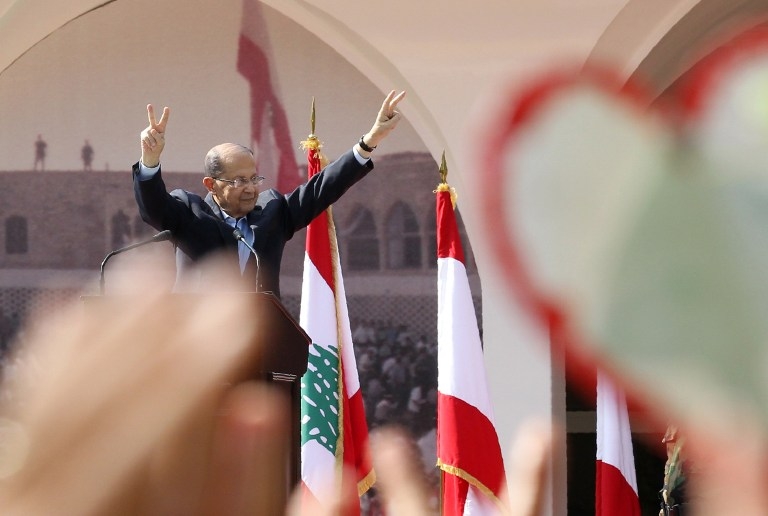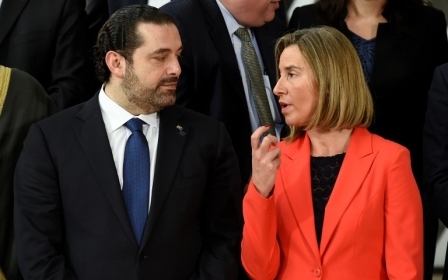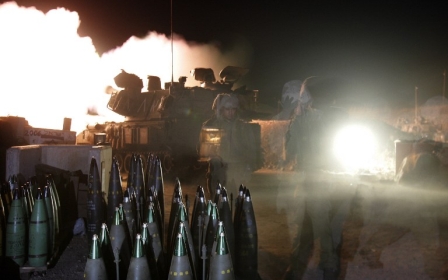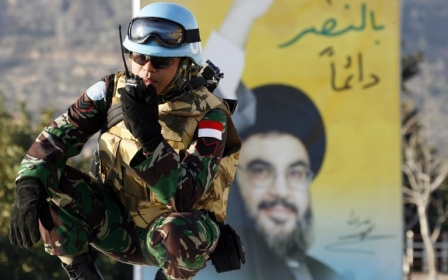Lebanon’s electoral suicide

The Lebanese constitution, adopted in 1926 under the French Mandate, gives the president of the republic the power to adjourn parliament for a period not exceeding one month.
For more than 90 years, Article 59 of the constitution lay dormant. That was until last week, when incumbent President Michael Aoun enacted it after key political factions failed abysmally to pass a new electoral law for the parliamentary elections scheduled for this summer.
Aoun's constitutional bailout was a direct response to growing sectarian tensions brought about by the refusal of the Christian parties, among them Aoun's own party - the Free Patriotic Movement (FPM) - and the Lebanese Forces (LF), to allow the current parliament to extend its term for a third time.
In principal, Aoun's step was perceived by his supporters as a sagacious initiative that would pave the way for all sides to hammer out an acceptable deal.
However, a proper examination of the events so far and the obstacles separating them from 15 May, the end of the 30-day period, does not bode well for the Lebanese people, nor for their political leadership.
Parliamentary puzzle
Much of the debate over the election law involves all sides vying to pass a law that increases their current parliamentary seats - or at least maintains them.
Initially, the FPM and its ally Hezbollah staunchly supported the proportional electoral model, which supposedly provides a progressive and just reform of the archaic law. However, the FPM and its Christian counterpart, the LF, soon realised that the proportional law was indeed disenfranchising, as it would virtually give Muslim voters, with their numerical majority, a final say in electing Christian MPs.
Coincidently, Hezbollah's intentions from the onset was to secure one-third of the seats in parliament. Although that would appear to be a distant possibility, if not entirely impossible, it would allow the group to veto and derail the democratic process legally rather than to continue to do so by threat or use of force.
Prime Minister Saad al-Hariri, who heads the largest parliamentary bloc, has objected to Hezbollah's plan and suggested a hybrid law which incorporates both majoritarian (winner-takes-all) and proportional voting.
The entrenchment of all parties behind their respective laws blocked any chance of a halfway settlement, leaving them with two choices: extend the term of the current parliament, or go ahead with elections under the provisions of the much-loathed prevailing election law, commonly referred to as the 60's law.
Suspending parliament has left Aoun with the burden of devising a way out of this predicament. The solution will require the proposal of a completely original law and one which will be unanimously accepted by all parties involved.
Consequently, Aoun delegated this somewhat herculean task to his son-in-law and successor as head of FPM, Gebran Bassil, Lebanon's controversial minister of foreign affairs. Bassil's efforts, however, yielded an even more contentious two-stage law, one which involves a first round of proportional sectarian vote, in which each sect elects its own candidate, followed by a second majoritarian round.
Bassil's law virtually amounts to adding oil to an already flaming sectarian fire, potentially risking civil unrest.
Taif: dead and buried?
More importantly, Bassil's horrid suicidal electoral law reveals an intrinsic flaw in the ruling elite's reactionary approach to lawmaking or lack thereof.
Many of the proposed electoral laws, chiefly Bassil's, blatantly disregard the essential pillar of the state, the Lebanese constitution. The constitutional amendments, introduced as result of the Taif accord in 1989 which ended 15 years of civil war, clearly stipulate (in article 95) a pledge to abolish political confessionalism.
Therefore, 28 years after Taif, no self-respecting Lebanese lawmaker should present the Lebanese with outdated and seditious laws which can only widen the sectarian schism.
Additionally, much of the logic that surrounds the election negotiations reflects a dangerous undertone by the oligarchs which is that this election law, whatever its specifics, will be eternally static and, therefore, losing this election has existential implications for the losing side.
This perilous road can only lead to the death of Lebanon's already paraplegic democratic system. Elections are a routine exercise which also involve a constant revision and reform of laws which are neither perfect, nor eternal.
The Lebanese, at least starting in 2005 when the Syrian army left Lebanon, were given numerous chances to change their ruling elite, something which they willingly chose not to do. However, the ruling elite, including Aoun, need be reminded that democracy is a not a spectator sport and that depriving the Lebanese of their right to vote will render them obsolete.
The Aoun establishment, represented by Bassil, should refrain from proposing more laws which send a message to their Muslim compatriots that the Taif agreement is dead and buried.
Whatever the end result of the next election, when and if it takes place, the Lebanese at large and the politicians specifically must grasp that an idle parliament is the devil's plaything.
If they do not find a way to resolve their disagreements through dialogue, the only viable option would be a suicidal plunge into the abyss of civil war, in which parliamentary seats are the least of their concerns.
- Makram Rabah is a lecturer at the American University of Beirut, Department of History. He is the author of A Campus at War: Student Politics at the American University of Beirut, 1967-1975.
The views expressed in this article belong to the author and do not necessarily reflect the editorial policy of Middle East Eye.
Photo: Lebanese President Michel Aoun waves to the crowd during a rally celebrating his election on 6 November 2016 at the presidential palace in Baabda (AFP)
This article is available in French on Middle East Eye French edition.
New MEE newsletter: Jerusalem Dispatch
Sign up to get the latest insights and analysis on Israel-Palestine, alongside Turkey Unpacked and other MEE newsletters
Middle East Eye delivers independent and unrivalled coverage and analysis of the Middle East, North Africa and beyond. To learn more about republishing this content and the associated fees, please fill out this form. More about MEE can be found here.





